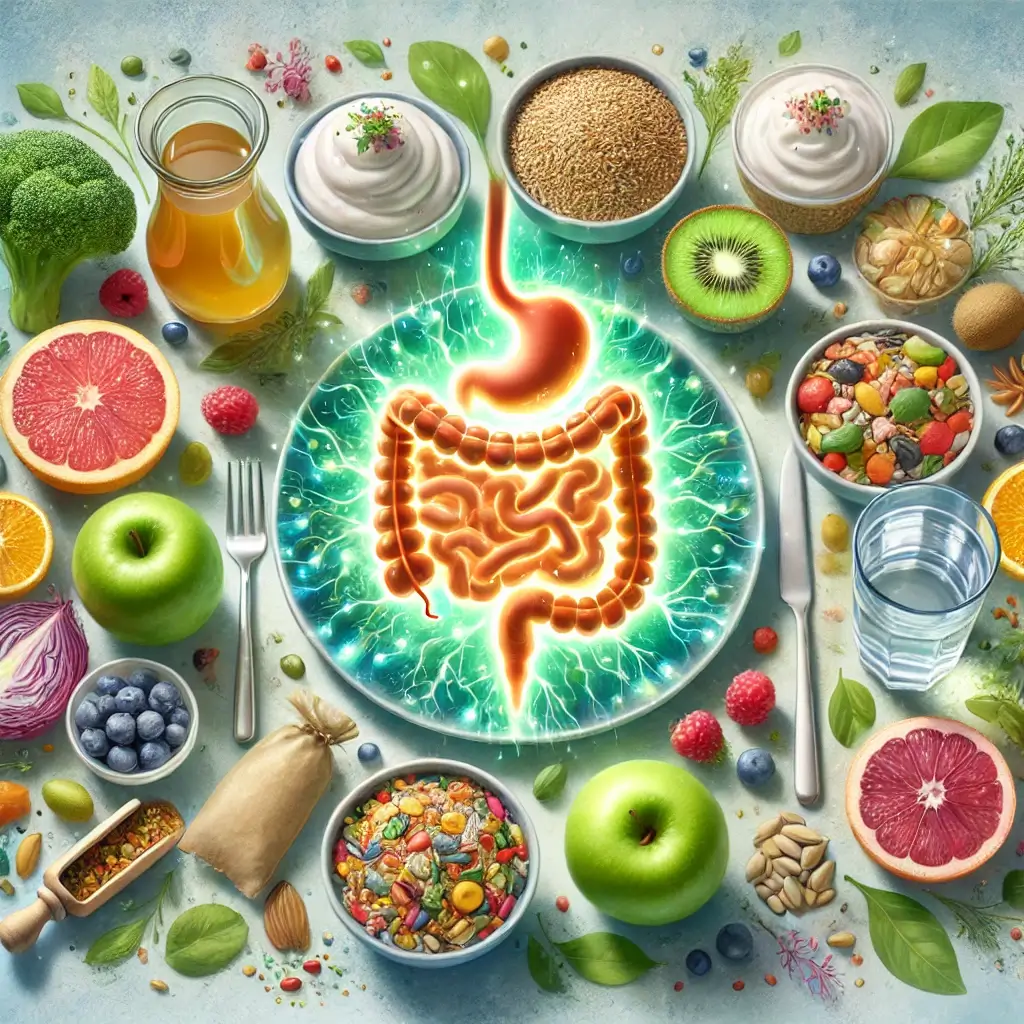Understanding the Foundation of Health
Your digestive system is a cornerstone of overall health, responsible for breaking down food, absorbing nutrients, and eliminating waste. Maintaining its optimal function is pivotal, as it affects not just digestion but also immunity, mental health, and energy levels. Research underscores the profound impact of dietary choices on gut health, revealing that a balanced diet can nurture the digestive system, prevent common ailments like constipation and bloating, and even reduce the risk of chronic diseases such as irritable bowel syndrome (IBS) or colorectal cancer.
The Importance of Gut Microbiome
The gut is home to trillions of microorganisms collectively known as the gut microbiome. These bacteria play a vital role in digestion, nutrient synthesis, and immune regulation. Dietary patterns rich in diverse nutrient-dense foods can support the gut microbiome, while a diet high in processed foods and added sugars can disrupt its balance, leading to inflammation and digestive disorders.
Achieving Balance Through Diet
A balanced diet doesn’t require extreme restrictions or radical changes. Instead, it focuses on incorporating nutrient-dense foods, staying hydrated, and paying attention to your body’s signals. By making thoughtful dietary adjustments, you can support digestive health, optimize nutrient absorption, and promote overall well-being.
Introduction to Digestive Wellness
This article explores evidence-based dietary strategies to promote digestive wellness. From the essential role of fiber to the benefits of probiotics and hydration, these practical insights will guide you toward creating a gut-friendly eating plan.
Understanding Fiber’s Role in Digestion
Fiber is indispensable for smooth digestion. Soluble fiber dissolves in water to form a gel-like substance, helping soften stool and promote easier bowel movements. Insoluble fiber, on the other hand, adds bulk to stool, ensuring it moves efficiently through the digestive tract. Prebiotic fibers found in foods like bananas, asparagus, and garlic, feed beneficial gut bacteria, promoting a thriving microbiome.
Key Sources: Include leafy greens, whole grains like oats and quinoa, and legumes such as lentils and black beans. Aim for 25–30 grams of fiber daily, as recommended by health experts. Clinical studies reveal that a high-fiber diet not only alleviates constipation but also reduces the risk of gastrointestinal disorders, including diverticulitis and colorectal cancer. A landmark study published in The Lancet emphasized fiber’s role in reducing inflammation and enhancing gut health (McRorie et al., 2018).
The Role of Water in Digestive Health
Water plays a critical role in digestion by aiding in the breakdown of food and facilitating nutrient absorption. Proper hydration prevents constipation by softening stool and ensuring its smooth passage through the intestines. Experts recommend drinking 2–3 liters of water daily for optimal digestive health.
Herbal teas like ginger or peppermint can also provide digestive benefits. Ginger tea is known for its anti-inflammatory properties and ability to alleviate nausea, while peppermint tea relaxes the gastrointestinal muscles, reducing symptoms of bloating and cramping.
Understanding Probiotics and Prebiotics
The gut microbiome consists of trillions of bacteria that influence digestion and immunity. Probiotics introduce beneficial bacteria into the gut, enhancing its microbial diversity. Foods like yogurt, kefir, and sauerkraut are rich in probiotics. Prebiotics, the “food” for probiotics, are equally vital and can be sourced from bananas, onions, and whole grains.
Research in the Journal of Translational Medicine highlights the combined benefits of probiotics and prebiotics in promoting gut health and reducing symptoms of IBS and diarrhea (Singh et al., 2017). Incorporating both into your diet can foster a resilient microbiome.
Managing Processed Foods and Dietary Triggers
Processed foods, often high in unhealthy fats, sodium, and added sugars, can disrupt the gut’s delicate balance and contribute to inflammation. Reducing processed food intake and opting for whole, minimally processed alternatives can significantly benefit digestion.
For individuals with digestive disorders like IBS, identifying and managing dietary triggers is crucial. Low-FODMAP diets—developed to reduce fermentable carbohydrates—can be effective for managing symptoms, but these should be undertaken with professional guidance.
Creating an Optimal Digestive Health Plan
To cultivate optimal gut health, consider the following strategies:
Diversity in Diet: Incorporate a wide range of fruits, vegetables, whole grains, and lean proteins. This variety ensures a broad spectrum of nutrients, fostering gut microbiome diversity. Mindful Eating: Chew food thoroughly and eat slowly to aid digestion. Avoid overeating, as it can burden the digestive system. Moderation is Key: Balance is vital. While fiber and fermented foods are beneficial, excessive consumption can lead to gas or bloating. Pay Attention to Your Body: Monitor how different foods affect your digestion and make adjustments accordingly.
Final Thoughts on Digestive Health
Digestive wellness begins with your daily dietary choices. A fiber-rich, nutrient-dense diet, combined with proper hydration and mindful eating, can transform your gut health and overall well-being. Remember, consistency is key—small, sustained changes yield significant long-term benefits. For those with persistent digestive issues or specific conditions, consulting a registered dietitian or healthcare provider is essential. With a balanced approach, you can nurture your digestive system and achieve lasting health.
Academic References
McRorie, L. W., et al. (2018). Dietary fibre and health: A narrative review. The Lancet: Gastroenterology & Hepatology, 3(1).
Ouwehand, A. C., et al. (2020). Probiotic and other functional microbes: From markets to mechanisms. Current Opinion in Biotechnology, 61, 83–90.
Singh, R. K., et al. (2017). Influence of diet on the gut microbiome and implications for human health. Journal of Translational Medicine, 15(73).
